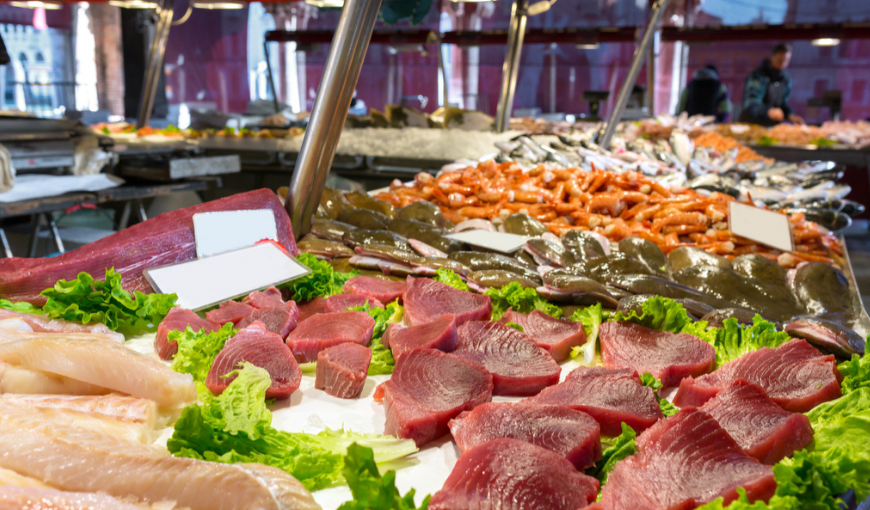The impact of COVID-19 on the European tuna and seafood consumption
MEKSEA.COM – Europeans still enjoy eating tuna and seafood products amid the covid-19 pandemic, two-thirds of them saying these dishes are on their menu several times a month.
The global pandemic has reduced European seafood consumption due to price escalation. However, according to the latest survey by the Kantar network on “EU consumer habits regarding fishery and aquaculture products”, about 64% of 26,669 survey respondents said that they continued to eat fish and seafood regularly at home during the epidemic. In which, 62% of survey participants eat frozen foods every month and 59% consume fresh and canned seafood.
 According to the latest survey, most European still consume tuna and seafood regularly at home during the epidemic. (photo: Internet)
According to the latest survey, most European still consume tuna and seafood regularly at home during the epidemic. (photo: Internet)
However, the number of people eating seafood at restaurants and other food outlets has decreased significantly. One of the reasons for this decline is that restaurant and food service chains have had to suspend operations during the Covid-19 pandemic.
In addition, a part of survey respondents also said that they have cut back on consumption because these products have become too expensive and they have replaced seafood products with other foods.
Issues related to the consumption of canned and frozen products
For canned and processed products, Europeans are often interested in the content on the product label before making a purchasing decision. Their first concern was about species, they needed to know the exact species of fish or seafood included in the item. Second, they want to know if this product is wild-caught or farm-raised. Third is the fishing or farming area because they care about the source of their food.
For fresh, frozen, smoked or dried seafood products, there are three main things that buyers want to see on their product labels. They are concerned about the expiration date because they consider it the most important information. Interestingly, Europeans do not care about this content on canned products. Besides that, they are interested in the name of the product and the species mentioned on the label. Moreover, they want to know if this product is farmed or wild-caught.
Europeans are interested in product information
 Product information is an important factor affecting European buying behavior. (photo: internet)
Product information is an important factor affecting European buying behavior. (photo: internet)
Europeans are very interested in the date of catch or harvest of all fishery products caught and farmed. They want to know the exact country where the fishing or marine vessel is registered. In addition, the appearance of the product is also an important factor determining their buying behavior. As a result, steak producers seem to be addressing this need by giving their frozen or de-frosted steaks a more appealing red color and avoiding the usual oxidized brown color. Consumers believe that red with higher quality and freshness. Recently, FNN announced that tuna steaks illegally treated with nitrates and carbon monoxide are the second largest form of food fraud in Europe.
|
If you are looking for abundant and diverse seafood supplies from Vietnam to meet your market demand in the upcoming Christmas 2021, now is right time to contact us for program “For Your Christmas Sales Plans”. Meksea Sales Team is always willing to advise and support you in the best deals as well as the best solutions for booking |
By Hayati (Meksea Team)
(hayati@mekseaconnection.com)
(Reference: VASEP)
If you found this topic interesting, please click the Like button below, so we may continue to expand this topic. Leave a comment with your thoughts for the author team to discuss

